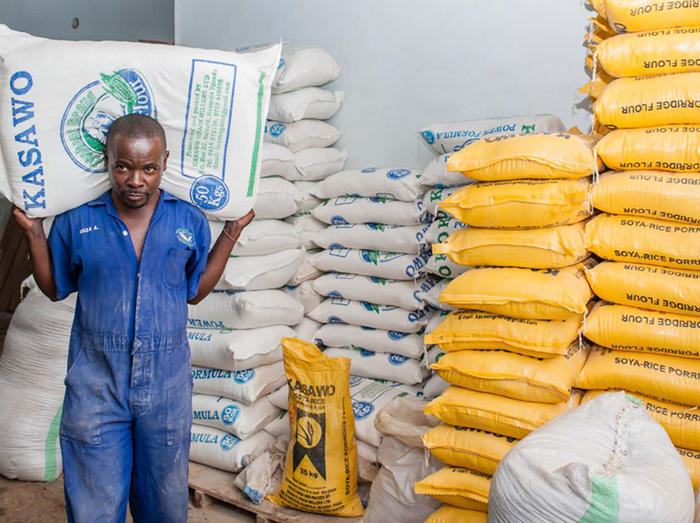|
Maize flour is produced all over Uganda but the central region houses 38 percent the of maize millers, the reason why the Uganda National Bureau of Standards (UNBS) has urged the sub sector to maintain high standards of storage and processing maize into flour. Speaking at the Stakeholders Meeting with Kisenyi maize millers, the UNBS Head of Medium and Small Scale (SMEs) Division, Ronald Ahimbisibwe, noted that the maize sector is still faced with the challenges of compliance to good manufacturing practices, good hygienic practices and milling from makeshift/temporary structures that have all contributed to production of poor quality maize flour. In the recent past, maize flour tested in the UNBS laboratories has been found to contain E.coli and aflatoxins that are danger to human health. Aflatoxins can lead to acute poisoning (aflatoxicosis) and can be life threatening, usually causing damage to the liver. Ahimbisibwe called on maize millers to embrace certification of their products that will in turn increase consumer confidence in their products and help them access national and international markets. He added that maize flour standards states that, “Milled maize (corn) products shall not contain any foreign matter such as insects, fungi or dirt; shall be free from fermented musty or other objectionable odor and colors; and it shall also be wholesome and fit for human consumption in all aspects.” Millers in Kampala however said the maize grains bought from the village are very dirty and some farmers supply immature maize that has in turn resulted into producing flour that does not meet standards. He also urged government to provide equipment to measure moisture content in maize flour since majority of the millers are poor and cannot afford to buy such equipment.”
|
UNBS urges Kisenyi maize millers to improve standards

- Advertisement -






